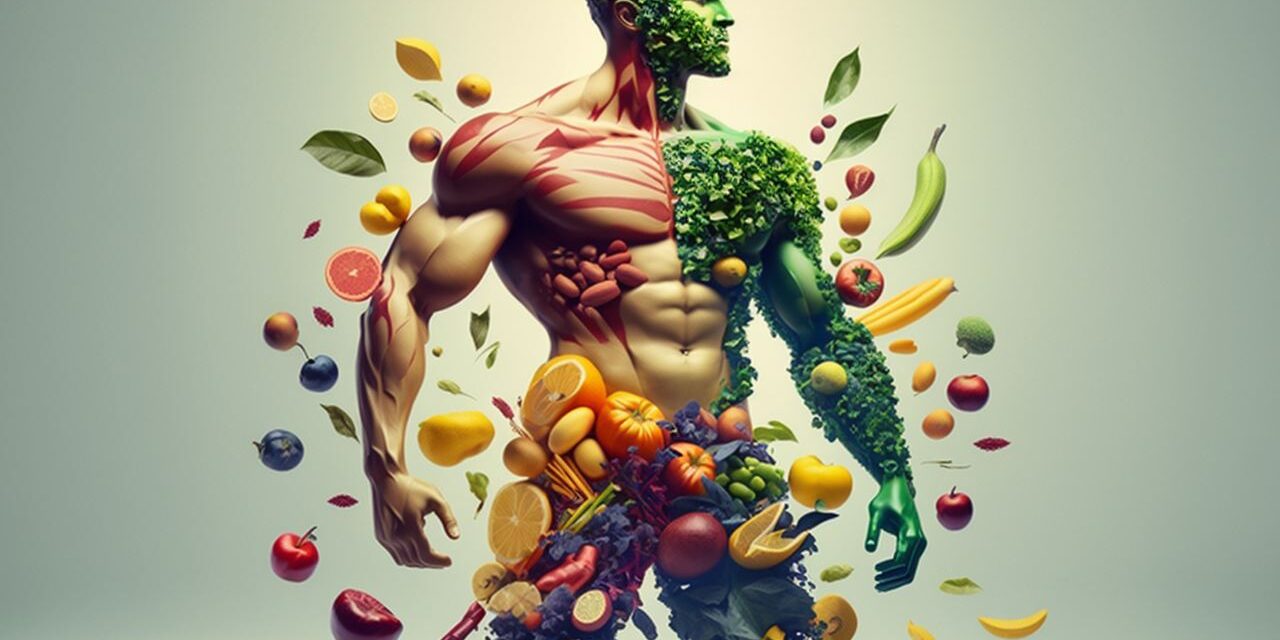Introduction: Why Is Building Muscle So Complicated Today?
Every man has probably asked himself at some point: “What the fuck should I eat to gain muscle?” In a world flooded with contradictory advice, toxic processed foods, and fleeting diet trends, it’s no wonder men are confused. But was it always this complicated? A hundred years ago, muscle growth was a natural byproduct of labor and whole food consumption. Today, men have to navigate a minefield of misinformation. Why has something as basic as eating to grow strong become so difficult?
The Modern Man vs. The Old-World Laborer
In the early 20th century, men consumed dense, nutrient-rich foods because their lifestyles demanded it. Farmers, blacksmiths, and soldiers didn’t count calories or macros—their work burned them. Contrast that to now: the average American spends 6.5 hours a day sitting (Journal of the American Medical Association, 2019). Combine that with processed junk, and you’ve got a recipe for weakness. Back then, steak, eggs, butter, and milk were staples. Are you feeding your body like a laborer or like a sedentary office worker?
The Essential Macronutrients: Protein, Carbs, and Fats
Muscle growth hinges on three pillars: protein, carbohydrates, and fats. Research from the International Society of Sports Nutrition (ISSN) states that men should consume 1.6 to 2.2 grams of protein per kilogram of body weight daily to maximize muscle gain. Protein is the building block, yet most men either under-consume it or drown themselves in low-quality sources.
Carbs are not the enemy; they replenish glycogen and fuel workouts. The ISSN recommends that athletes consume 5-7 grams of carbohydrates per kilogram of body weight for muscle building. Fats? Crucial for testosterone. Men on low-fat diets can see a 10-15% drop in testosterone according to a study published in the Journal of Clinical Endocrinology & Metabolism.
Are you afraid of fats because society told you cholesterol is evil? Or do you recognize that testosterone—the essence of manhood—thrives on healthy fats like those in avocados, nuts, and olive oil?
The Problem with Modern Processed Foods
Men today face a unique disadvantage: our food is chemically altered, nutrient-poor, and engineered for addiction. The CDC reports that 60% of the American diet comes from ultra-processed foods, leading to obesity, hormonal imbalances, and decreased muscle mass.
Meanwhile, women are not as hormonally punished by processed foods when it comes to body composition, thanks to different metabolic pathways and societal leniency on female physicality. Why does society push men to consume like pigs yet judge them for not being physically imposing?
Women’s Advantage in the Dating Market
Let’s be real: women don’t need visible muscle to be valued in dating. Society rewards women for youth and aesthetics, not physical strength. A study from the Pew Research Center reveals that women receive three times more dating app matches than men, even when controlling for physical fitness.
If women understood the discipline, resilience, and mental fortitude required for a man to build muscle, could they better appreciate masculine struggle? Could women benefit from adopting the male discipline of strength-building to enhance their own physical and mental health?
Feminism’s Role in Nutritional Misinformation
Modern feminism indirectly discourages male strength by promoting the idea that gender differences are social constructs. This undermines the biological reality that men need more calories, protein, and fats to thrive. Feminism pushes narratives that equate male physicality with toxicity, thereby sabotaging both male and female understanding of optimal health.
Are women unknowingly enslaved by ideologies that sever them from biological truths? Rising female health issues, including a 40% increase in obesity rates among women since 1980 (CDC), suggest that the feminist denial of traditional health wisdom is backfiring. Who profits from this confusion?
Real-Life Eating Strategies for Muscle Gain
So what should you eat to gain muscle?
- Protein: Eggs, beef, chicken, fish, and Greek yogurt.
- Carbs: Rice, oats, potatoes, and fruits.
- Fats: Avocados, nuts, seeds, and olive oil
Men should aim for three to four meals daily, each containing a balance of these macronutrients. Add protein shakes post-workout for convenient recovery. Are you disciplined enough to prep your meals, or will you let convenience dictate your strength potential?
The Psychological Barrier
Why do men fail to stick to muscle-building diets? It’s not just willpower—it’s societal conditioning. Men are taught that discipline is rigid and toxic, while indulgence is liberating. But what’s truly liberating: a weak, soft body or one forged in the fires of discipline?
Final Thoughts: Are You Feeding the Man You Want to Become?
Every meal is a choice between weakness and strength. Will you continue to let society and its feminist-influenced food narratives emasculate you? Or will you eat like the warrior you were meant to be? Real muscle isn’t just built in the gym—it starts on your plate.
Sources:
- Journal of Clinical Endocrinology & Metabolism: https://academic.oup.com/jcem/article/94/10/3724/2596323
- International Society of Sports Nutrition: https://jissn.biomedcentral.com/articles/10.1186/s12970-017-0177-8
- CDC Processed Food Consumption: https://www.cdc.gov/pcd/issues/2022/21_0349.htm
- Pew Research Center Dating Data: https://www.pewresearch.org/internet/2020/02/06/the-virtues-and-downsides-of-online-dating/











